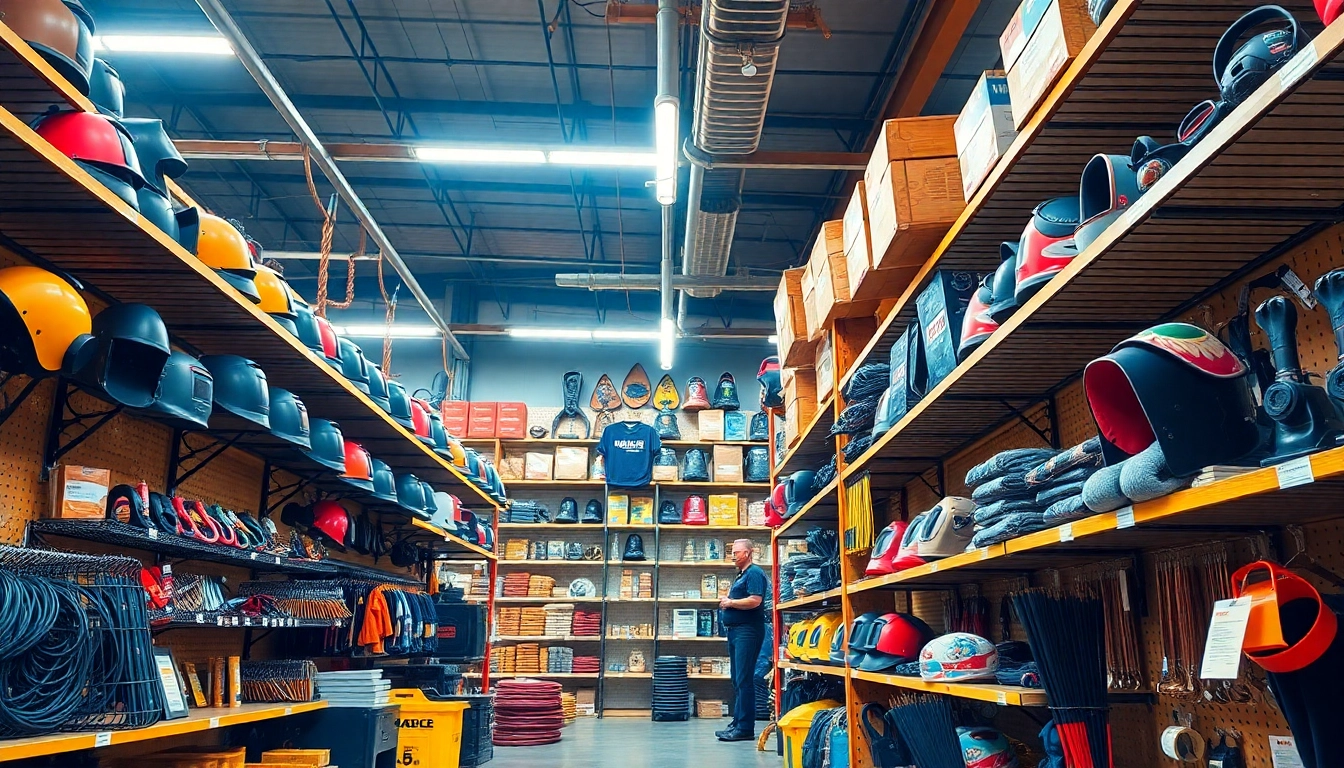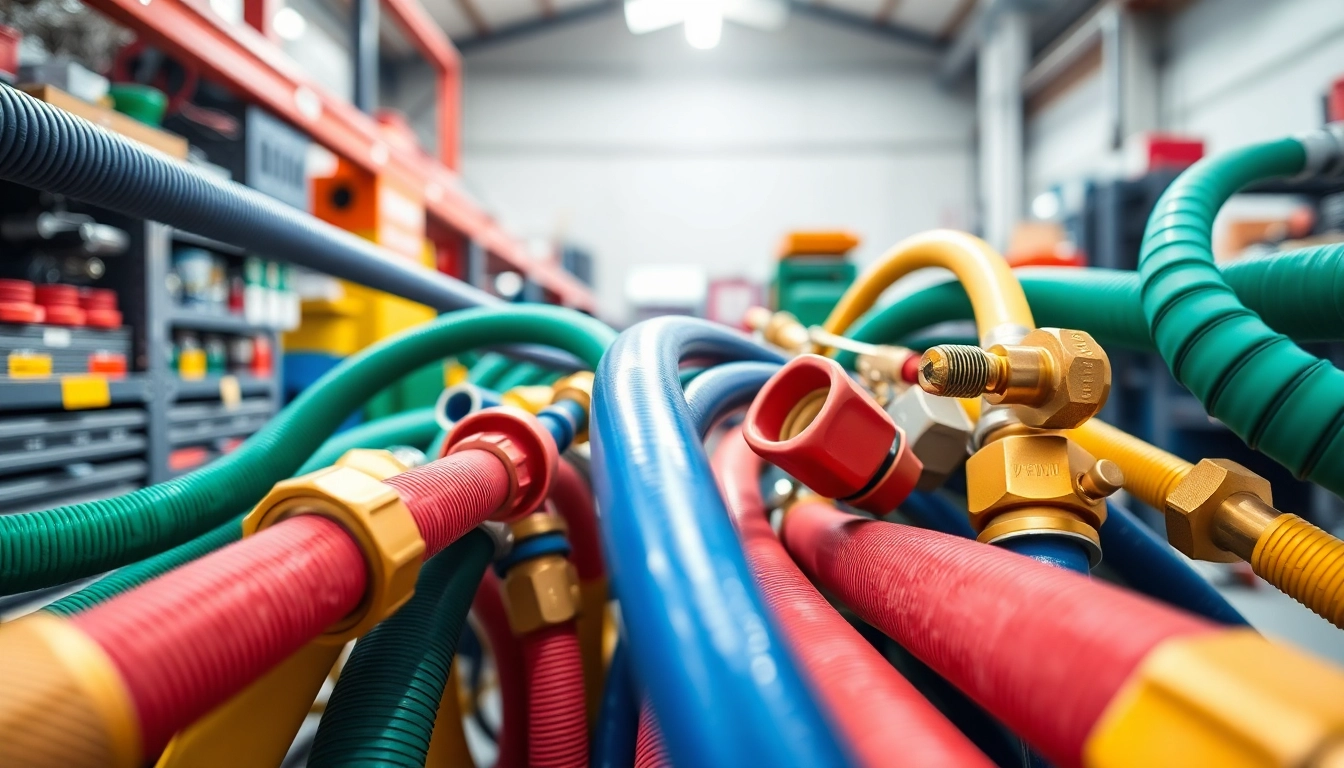Understanding Welding Supplies and Their Importance
Welding, an essential skill in manufacturing, construction, and metalworking, requires reliable supplies and equipment. Whether you’re a professional welder or a DIY enthusiast, finding quality welding supplies near me is crucial to achieving successful, safe results. In this article, we will explore everything you need to know about welding supplies, their types, where to find them, and best practices for using them.
What Are Welding Supplies?
Welding supplies encompass a broad range of items required to perform welding tasks. They include, but are not limited to, welding machines, electrodes, filler materials, safety gear, and various accessories crucial for the welding process. These supplies ensure that welders can achieve the desired metal joins while adhering to safety regulations.
Why Choose Local Welding Supplies Near Me?
Opting for local welding suppliers offers significant benefits. Local businesses often provide personalized service, quick availability, and the chance to inspect products in person before purchasing. Additionally, supporting local shops contributes to the community economy, fostering a market where quality and customer service matter.
The Benefits of Quality Welding Equipment
Investing in quality welding equipment can enhance your work’s efficiency, safety, and durability. High-grade supplies reduce the risk of weld defects, provide better finishing, and increase the longevity of your welds. Additionally, quality tools often come with superior warranties and support, ensuring you receive assistance when needed.
Types of Welding Supplies Available
Essential Equipment for Every Welder
Every welder needs certain essential equipment to ensure effective and safe operation. Here’s a breakdown of some key components:
- Welding Machines: The heart of the welding process, machines vary based on the type of welding (MIG, TIG, Stick). Each has unique strengths suited for different applications.
- Electrodes: These are used to provide the filler material needed to create welds. Selecting the right type based on the material being welded is crucial.
- Welding Wire: Similar to electrodes, welding wires vary in thickness and type, impacting the welding process and final results.
- Welding Helmets: Essential for eye protection, helmets shield welders from fierce light and flying particles.
- Clamps and Fixtures: These tools help secure the workpieces together, providing stability during the welding process.
Specialized Welding Tools and Accessories
Beyond basics, there are specialized tools and accessories that can enhance your welding experience:
- Plasma Cutters: Perfect for cutting metals with precision.
- Welding Gloves: Made from heat-resistant materials, they protect hands from burns and sparks.
- Grinders: Utilized for finishing work and preparing surfaces before welding.
- Protective Clothing: Both aprons and full suits made from flame-resistant materials are optional but recommended for extra protection.
Safety Gear: Protecting Yourself While Welding
Safety gear is paramount when engaging in welding activities. Apart from welding helmets and gloves, the following safety equipment is similarly essential:
- Respirators: To avoid inhaling harmful fumes and gases emitted during welding.
- Face Shields: Added protection for facial areas, especially when grinding.
- Steel-Toed Boots: To protect feet from heavy falling objects.
- Ear Protection: Helpful in avoiding hearing damage from equipment noise.
Where to Find Welding Supplies Near Me
Local Stores vs. Online Retailers
When searching for welding supplies, you have two primary options: local stores and online retailers. Each comes with its pros and cons:
- Local Stores: Advantages include immediate access to products and the ability to ask questions or get advice from knowledgeable staff. You can often find specialized tools that are hard to ship.
- Online Retailers: These can provide competitive pricing and a wider variety of options. However, consider shipping times and costs, especially for heavy equipment.
How to Choose the Right Supplier
Choosing the right supplier is critical for quality welding materials:
- Reputation: Research suppliers online, focusing on reviews and ratings.
- Inventory: Ensure they stock a comprehensive inventory that meets your needs.
- Experience: Look for suppliers with extensive industry experience who can offer informed recommendations.
- Customer Service: Efficient and helpful customer service can make your purchasing experience far more positive.
Customer Reviews and Recommendations
Customer reviews serve as both a quality check and guide. Seek out reviews on various platforms to gauge satisfaction levels. Recommendations from peers in your industry can also direct you to trusted suppliers based on firsthand experiences.
Comparison of Local Welding Supply Stores
Pricing and Quality of Welding Supplies
Pricing can vary significantly among suppliers. However, the cheapest option isn’t always the best. When comparing prices, consider the quality of the welding supplies, warranty options, and after-sales service. Balanced quality with cost is the key to a worthwhile investment.
Location Convenience for Pickup
When selecting a nearby supplier, convenience matters. Choose a supplier that is easily accessible to avoid delays in project timelines. This can mean the difference between getting supplies today or waiting for delivery.
Inventory Diversity Among Competitors
A diverse inventory can mean a lot in terms of your welding needs. A supplier that offers everything from basic welding machines to advanced tooling provides a one-stop-shop experience that can save you time and effort.
Best Practices for Using Welding Supplies
Maintaining Your Welding Equipment
Regular maintenance of your welding equipment can ensure longevity and optimal performance. Follow these best practices:
- Clean Regularly: Make sure to clean your welding tools after each use, removing any slag or debris.
- Check Electrical Connections: Inspect and tighten connections regularly to avoid accidental short circuits or equipment failure.
- Store Properly: Keep machines and tools in a dry place to prevent rust and degradation of materials.
Safety Protocols When Using Welding Supplies
Adhering to safety protocols can prevent severe accidents while welding:
- Use Personal Protective Equipment (PPE): Don your full range of protective gear before starting.
- Maintain Ventilation: Ensure your workspace is well-ventilated to avoid inhaling harmful fumes.
- Follow Equipment Instructions: Read all user manuals thoroughly before operating new equipment.
Maximizing Efficiency in Your Welding Projects
Efficiency is key for any welding project. To maximize your workflow:
- Plan Thoroughly: Create a comprehensive plan that outlines all steps of the welding process.
- Organize Your Workspace: Keep all tools and supplies within reach to reduce downtime.
- Practice: Regular practice can improve speed and accuracy in your welding techniques.



